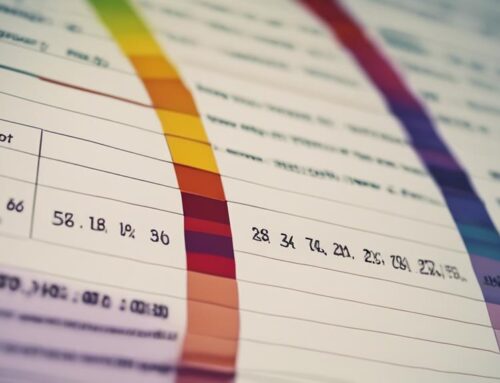When verifying mortgage documents, ensure title deeds prove property ownership. Confirm boundaries, former owners, and liens to prevent issues. Verify income through financial records to ensure stability. Scrutinize job history and tax returns for financial capacity. Credit reports assess creditworthiness through scores and payment history. Analyze property appraisals to align loan amount with fair market value. Check legal documents for accuracy and notarization. Validate signatures for authenticity. If you want to learn more about each step, the process is crucial for a smooth mortgage verification.
Title Deeds
When verifying mortgage documents, the first step is to examine the title deeds of the property. Title deeds are legal documents that prove ownership rights to a particular property. These deeds contain essential information such as the property’s boundaries, previous owners, and any existing liens or encumbrances. Ensuring the validity and accuracy of these title deeds is crucial in the mortgage verification process.
Ownership rights detailed in the title deeds establish who has the legal authority to sell, mortgage, or transfer the property. It is imperative to confirm that the individual or entity applying for the mortgage is indeed the rightful owner as stated in the title deeds. Any discrepancies or inconsistencies in the ownership rights can lead to serious legal complications down the line.
Careful examination of the title deeds helps to safeguard the interests of both the lender and the borrower. By verifying the ownership rights outlined in these documents, you can proceed with confidence in the mortgage approval process.
Income Verification
To verify the income of an applicant for a mortgage, meticulously review their financial statements and sources of earnings. Start by examining their employment history to ensure a stable income flow. Look for consistency and longevity in their job positions, as this can indicate a reliable income source. Additionally, scrutinize their tax returns to corroborate the income declared on their application. By comparing the information provided in the tax returns with their stated earnings, you can validate the accuracy of their income claims.
Employment history plays a crucial role in income verification as it provides insights into the applicant’s job stability and earning potential. Analyzing the duration and progression within their current job or industry can help assess their ability to meet mortgage payments. Furthermore, reviewing tax returns offers concrete evidence of their income, allowing you to confirm their financial capacity. By carefully examining these aspects, you can ensure that the applicant has the means to fulfill their mortgage obligations.
Credit Reports
Examining credit reports provides crucial insights into an applicant’s financial history and reliability for mortgage approval. When reviewing credit reports, several key factors are analyzed to determine the applicant’s creditworthiness:
- Credit Score Analysis: Lenders scrutinize credit scores to assess an individual’s creditworthiness. A higher credit score indicates a lower credit risk, increasing the likelihood of loan approval.
- Debt to Income Ratio: Evaluating the debt to income ratio helps determine an applicant’s financial stability. Lenders prefer applicants with lower debt to income ratios as it showcases a better ability to manage monthly mortgage payments.
- Payment History: A detailed examination of the applicant’s payment history reveals patterns of timely payments or any delinquencies. Consistent on-time payments positively impact loan approval chances.
- Credit Utilization: Lenders assess how much of the available credit an applicant is using. Lower credit utilization ratios imply responsible credit management, contributing to a favorable loan approval decision.
Careful analysis of these credit report components is vital in determining the applicant’s creditworthiness and securing mortgage approval.
Property Appraisals
After evaluating the applicant’s credit reports, the next critical step in the mortgage approval process is assessing the value of the property through property appraisals. Property appraisals are essential to determine the fair market value of the property to ensure that the loan amount aligns with the property’s worth. Appraisals involve a detailed inspection of the property, considering its size, condition, location, and comparable sales in the area.
| Aspect | Description | Importance |
|---|---|---|
| Inspection | Thorough examination of the property to assess its condition and features. | Crucial for accuracy |
| Market Comparison | Comparison of the property with similar ones in the area to determine value. | Ensures fairness |
| Property Value | Determination of the property’s worth considering market trends and demand. | Influences loan amount |
The appraisal process helps mitigate risks for the lender by ensuring the property’s value is sufficient collateral for the loan. Property value fluctuations can impact the loan-to-value ratio, affecting the terms of the mortgage. Therefore, a detailed appraisal is crucial for both the lender and the borrower to make informed decisions.
Legal Documents
When verifying mortgage documents, ensuring the accuracy and legality of the legal documents is paramount. To achieve this, the following steps are crucial:
- Document Authentication and Validation: Conduct a thorough review to ensure the authenticity and integrity of the legal documents provided. Look for any signs of tampering or inconsistencies that may raise red flags.
- Signature Verification: Verify the signatures on the legal documents to confirm that they match the identities of the involved parties. Any discrepancies should be addressed and resolved promptly.
- Notarization: Check if the legal documents have been properly notarized. Notarization adds an extra layer of authenticity and legality to the documents, making them legally binding.
- Compliance with Legal Requirements: Ensure that all legal documents meet the necessary legal requirements and regulations. Any missing information or non-compliance issues should be rectified before proceeding with the mortgage process.
Frequently Asked Questions
What Is the Typical Timeline for Completing the Mortgage Document Verification Process?
When verifying mortgage documents, the typical timeline for completion can vary based on factors like document complexity and verification efficiency. Challenges may arise, but clear communication with customers can help streamline the process.
How Does the Verification Process Differ for Different Types of Mortgages (E.G. Fixed-Rate Vs. Adjustable-Rate)?
When comparing fixed-rate and adjustable-rate mortgages, the verification process varies mainly in income stability assessment. Fixed-rate loans prioritize steady income, while adjustable-rate ones consider potential income growth. Both require thorough documentation to ensure financial stability and repayment capability.
Are There Any Specific Documents or Information That Are Commonly Overlooked During the Verification Process?
In the verification process, it’s crucial to pay attention to missing signatures, incorrect income details, and incomplete employment history. Overlooking these can lead to delays or denials in the mortgage application.
Can the Mortgage Document Verification Process Impact the Interest Rate Offered by Lenders?
When lenders assess your mortgage, the document verification process can significantly influence the interest rates you’re offered. Delays in verification may lead to higher rates, emphasizing the importance of timely and accurate document submission.
What Happens if There Are Discrepancies or Errors Found During the Verification Process?
If discrepancies or errors are found during the verification process, lenders will guide you through the resolution process. They will assess the impact, handle errors efficiently, and work with you to resolve any discrepancies promptly.



